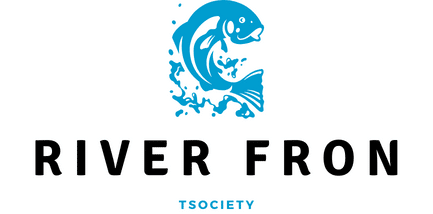What Are the Key Mental Strategies for Overcoming Plateaus in Competitive Weightlifting?

Why is it that after weeks or even months of steady progress in your weightlifting routine, you suddenly hit a wall? Your weights are no longer increasing, your strength isn’t improving, and your muscle growth seems to have stagnated. You’ve hit what’s commonly referred to as a ‘plateau’. But don’t let this deter you from your fitness goals. With the right mental strategies, you can overcome these plateaus and continue on your path to success.
Understanding the Concept of Training Plateaus
First, let’s delve into the concept of training plateaus. A plateau is a phase during your fitness journey where you no longer see noticeable progress in your strength and muscle development, despite maintaining a consistent workout routine. This is a common occurrence in weightlifting, often resulting from the body’s adaptive response to repetitive training stimuli.
Also read : How Can Youth Basketball Players Utilize Video Analysis to Improve Defensive Tactics?
It’s important to understand that plateaus are a normal part of any training regime. They’re not indicative of failure, but rather a sign that your body has adapted to your current workout routine. This is an opportunity for you to reassess and tweak your approach to training, enabling further progress.
The Crucial Role of Mental Strength in Overcoming Plateaus
Mental strength plays a crucial role in overcoming plateaus. The road to fitness is not just about the physical work but also includes a significant mental component. When faced with a plateau, many individuals tend to lose motivation or become frustrated. However, maintaining a positive mindset and adopting effective mental strategies can help you break through these stagnation periods.
Have you seen this : How Can a Vegetarian Diet Be Best Adapted for High-Intensity Boxers?
Remember, your mind is a powerful tool. It can either propel you towards your goals or hold you back. Hence, mastering the art of mental toughness is vital in surmounting any obstacles in your fitness journey, including plateaus.
Key Mental Strategies to Break Through Weightlifting Plateaus
Now that we’ve established the importance of mental strength, let’s look at some key mental strategies to help you break through weightlifting plateaus.
-
Set Clear and Realistic Goals: Having a clear vision of what you want to achieve can keep you motivated and focused during your training. Ensure your goals are both challenging and achievable. It’s also crucial to break down your long-term goals into smaller, short-term targets to maintain a sense of progress and direction.
-
Practice Patience and Consistency: Progress in weightlifting doesn’t occur overnight. It requires time, patience, and consistent effort. Don’t rush the process. Instead, focus on making small, incremental improvements in your workouts.
-
Maintain a Positive Mindset: Positivity is a powerful weapon in overcoming plateaus. Instead of viewing these periods as setbacks, see them as opportunities for growth and learning. Celebrate your small wins, and use any ‘failures’ as lessons to improve your training approach.
-
Utilize Visualization Techniques: Visualization is a technique used by many athletes to improve performance. By visualizing your success, you can train your mind to expect positive outcomes, thereby reducing anxiety and improving focus during your workouts.
Incorporating Adequate Rest and Recovery
Even as you gear your mind to push through plateaus, do not forget the importance of incorporating adequate rest and recovery into your training routine. Overtraining can lead to fatigue, decreased performance, and even injury.
Sleep is a vital part of the recovery process. Not only does it help repair and build muscle, but it also supports cognitive functions such as focus and memory, which are crucial for maintaining mental resilience.
Remember not to neglect your body’s signals for rest. If you’re feeling overly tired or fatigued, it might be time to take a break. Giving your body the time to recover can help you come back stronger and more prepared to tackle your workouts and overcome plateaus.
Seeking Professional Help to Overcome Plateaus
Sometimes, despite your best efforts, you might find it difficult to break through a plateau. At these times, seeking professional help can be beneficial. A personal trainer or sports psychologist can provide you with expert advice and techniques tailored to your specific needs and goals.
They can assess your current training routine, identify any potential areas of improvement, and provide you with strategies to optimize your workouts. Additionally, a sports psychologist can help you develop mental resilience and coping mechanisms to deal with challenges and setbacks.
In conclusion, plateaus in weightlifting are inevitable. However, with the right mental strategies, you can overcome these stagnation periods and continue to make progress towards your fitness goals. Remember, the key to success in weightlifting lies not just in physical strength but in mental resilience as well.
Progressive Overload: A Cognitive Approach
A crucial principle in strength training, ‘progressive overload’, can also be approached from a cognitive perspective in order to overcome plateaus. This principle emphasizes continually increasing the demands on your musculoskeletal system to continually make gains in muscle size, strength, and endurance. It is not just a physical concept, but can also be applied mentally to bolster your weightlifting progress.
To implement mental progressive overload, start by challenging your comfort zone. Gradually increase the mental demands you put on yourself during your workouts. For example, you can challenge yourself to maintain focus for a longer duration, improve your mental endurance through longer workouts, or enhance your mental agility by quickly adapting to new exercises or routines.
Next, develop your mental resilience. Training plateaus can be discouraging, but it’s important to remind yourself that with resistance training, these stagnation periods are normal and temporary. Cultivate a growth mindset, viewing every challenge as an opportunity to improve and grow. By reinforcing this mindset daily, you will build mental toughness, a key trait needed to break plateaus and stay motivated.
Finally, establish a habit of self-reflection. Consistently evaluate your mental state, emotional health, and overall motivation levels. By being aware of these factors, you can identify and address any mental obstacles that may be hindering your progress.
The Power of Social Support in Overcoming Plateaus
While weightlifting often conjures images of a solitary lifter in a gym, the journey is far from a solo endeavor. Social support plays a significant role in overcoming plateaus. Whether from a coach, gym buddies, or online communities, a supportive network can keep you accountable, provide encouragement during tough times, and celebrate your successes, all of which keep you on track toward your fitness goals.
Having a support system can provide a source of objective feedback. They can help you spot any problematic patterns in your workout routine or mindset that you may miss. Discussing your progress with others can offer fresh perspectives and solutions, helping you stay motivated and focused on your goals.
Furthermore, healthy competition within a supportive community can also drive progress. Striving to match or exceed the achievements of your peers can push you to break your plateau and reach new heights in your fitness journey.
Conclusion: Mental Resilience and Patience, the Keys to Success
In conclusion, overcoming plateaus in weightlifting is not merely about changing your workout routine or increasing the intensity of your exercise. It is about adopting the right mental strategies and harnessing the power of your mind to propel towards your fitness goals.
Patience, persistence, and mental resilience are your most potent tools in this journey. Embrace the plateaus as opportunities for growth and learning, rather than viewing them as setbacks. Use them as a stepping stone to reassess, learn, and tweak your approach to training.
Remember, every weightlifter, regardless of their level, will experience plateaus. But with the right mental strategies, adequate rest and recovery, and a supportive community, you can break through these plateaus and continue on your path to success.
Finally, don’t hesitate to seek professional help if you find it difficult to break a training plateau. Expert advice can provide invaluable insights and techniques tailored to your specific needs and goals. Your journey to weightlifting success is not a solitary endeavor; it is a team effort, with you at the helm, steering towards your fitness goals.
